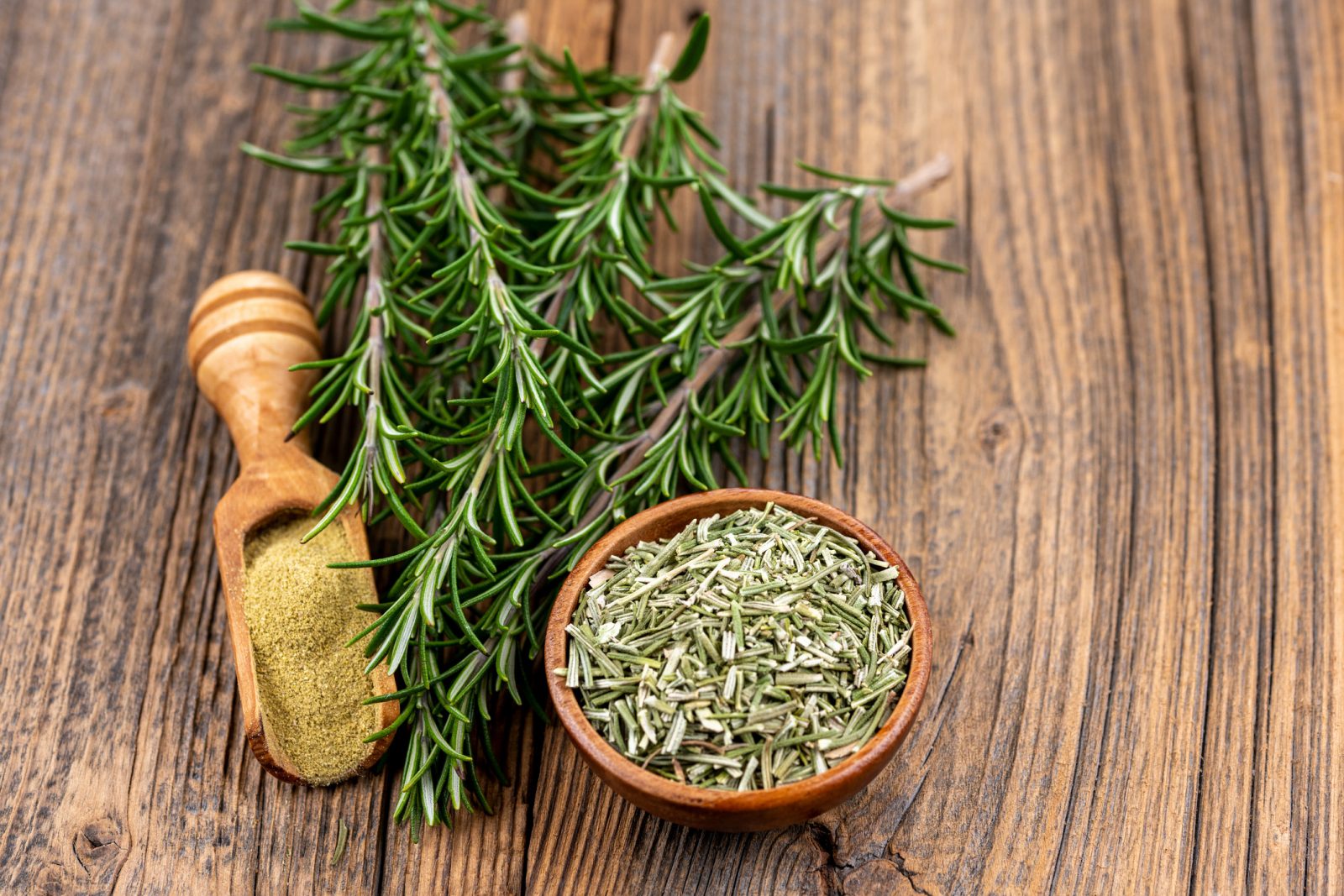Brock researchers have discovered the herb rosemary does more than pair well with mushrooms or roast chicken. They found that extract from the evergreen-like herb increases the transport of glucose into muscle cells, working much like drugs used to treat Type 2 diabetes.
Health Sciences Prof. Evangelia Tsiani worked on the project with her graduate student and the study’s primary author Madina Naimi as well as Chemistry researchers T.C. Stamatatos and D.I. Alexandropoulos, and McMaster University researcher Theodoros Tsakiridis.
Their findings have been published in a paper titled “Increased skeletal muscle glucose uptake by rosemary extract through AMPK activation.” The results complement Tsiani’s previous work studying the positive effects of resveratrol, an antioxidant common in red wine, and naringenin, a citrus flavonoid.
The new study is the first of its kind to show the direct effect of rosemary extract on muscle cell glucose uptake.
The research team found the extract has the same effect on glucose uptake as insulin, albeit by a different mechanism. It also found that it activated AMPK, a key signaling molecule in glucose uptake triggered by exercise and Metformin.
Insulin, a hormone produced in the pancreas, helps the body metabolize glucose from food, and use or store it for energy. Resistance to insulin happens when the body produces insulin but doesn’t use it effectively, causing glucose to build up in the blood stream.
Insulin resistance is a precursor to Type 2 diabetes, the most common form of the disease. It’s often treated with drugs like Metformin or exercise. Without treatment, however, high glucose levels in the blood can cause nerve and organ damage. It can also lead to heart attack or stroke.
“We know that in individuals with insulin resistance and Type 2 diabetes, at the molecular level certain steps in the insulin action are not working,” Tsiani says. “Finding ways to bring glucose into the cells and bypassing the defective steps will contribute towards finding a solution for the management of diabetes. In fact, that is the focus of the research of many labs around the globe including our own.”
Diabetes is a global health problem with more than half the world’s patients in Asia and Africa where economic constraints make it difficult to treat with costly drugs. Plants and herbs that activate AMPK and increase muscle glucose uptake could provide an effective, low-cost treatment alternative, Tsiani notes in her paper.
Like many scientists, Tsiani’s idea to study rosemary’s effects in treating diabetes came from observing the world around her. While travelling in Greece – rosemary is native to the Mediterranean – she heard anecdotes about the seeming positive effects that drinking rosemary tea had on the blood-sugar levels of individuals with Type 2 diabetes.
Investigating whether there was a connection was a given for a scientist who finds components in herbs that can counteract disease and isolates the chemicals within them.
Still, Tsiani can’t say that those with Type 2 diabetes should put more rosemary on the menu. “We can’t say we’ve found a solution for diabetes because this study is only with cells in culture,” she says.
More research is needed to determine if rosemary consumption can help prevent the disease often linked to diet and obesity, she adds.
The findings from the two-year study coincide with others that show rosemary normalizes hyperglycemia in animals. The next step is to determine the specific chemicals in the aromatic herb that stimulate muscle cell glucose uptake.
Tsiani is also studying the potential cancer-fighting properties of rosemary.









